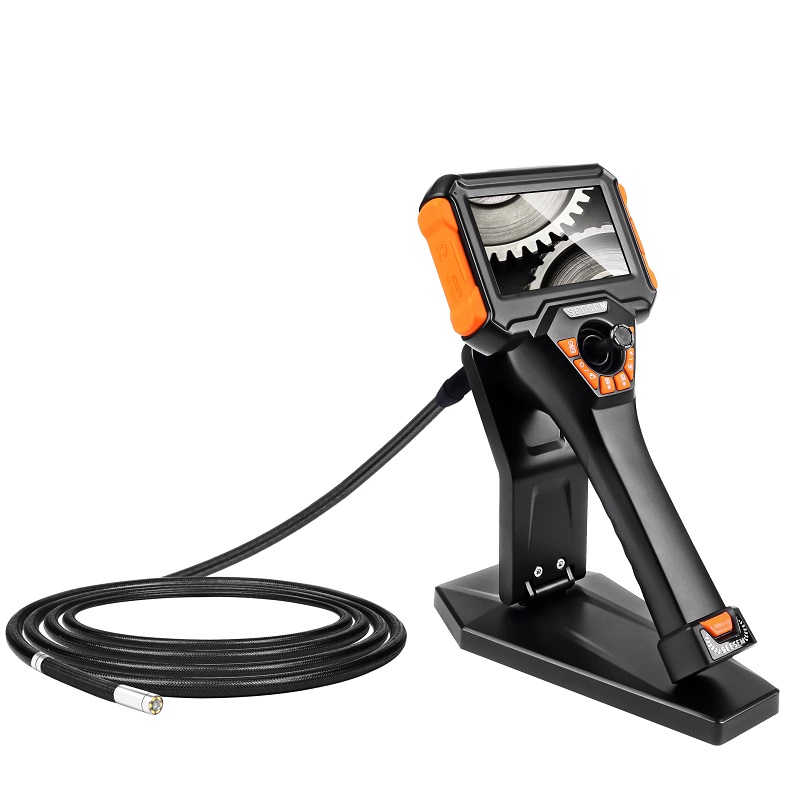The Unique Capabilities of Industrial Videoscopes
Industrial videoscopes have revolutionized the way we inspect and assess hard-to-reach areas in a wide range of industries. These versatile tools offer a multitude of special functions that play a crucial role in enhancing efficiency, safety, and accuracy across various applications. In this article, we will delve into the unique capabilities of industrial videoscopes and their impact on modern industrial processes.
- Remote Inspection: Perhaps the most apparent advantage of industrial videoscopes is their ability to conduct remote inspections. By utilizing a flexible, slender probe with a built-in camera and LED lights, professionals can visually examine inaccessible or confined spaces without the need for disassembly or extensive access preparations. This feature is especially valuable in sectors like aviation, automotive, and manufacturing, where equipment and structures are often challenging to access.
- High-Resolution Imaging: Industrial videoscopes are equipped with advanced imaging technology that provides high-resolution, clear visuals. This level of clarity ensures that even minute defects or anomalies can be detected, enabling early intervention and maintenance. This capability proves indispensable in industries like aerospace and oil and gas, where safety and precision are paramount.
- Articulation: Many industrial videoscopes are designed with articulating tips, allowing users to steer the camera in various directions. This flexibility is indispensable for navigating complex geometries, such as pipes, turbines, or aircraft engines. It enables comprehensive inspections, reducing the likelihood of missing critical issues.
- Image and Video Recording: Modern videoscopes often come with the ability to capture both images and videos. This documentation feature serves as a valuable resource for archiving inspection records, conducting post-inspection analysis, and sharing findings with colleagues and stakeholders. In regulated industries, it also aids in compliance and audit processes.
- Wireless Connectivity: Some industrial videoscopes are equipped with wireless connectivity options, enabling real-time sharing of inspection data with remote teams or supervisors. This capability enhances collaboration, accelerates decision-making, and minimizes downtime by facilitating immediate responses to identified issues.
- Versatility: Industrial videoscopes are versatile tools that can be adapted to different applications through the use of various probe lengths, diameters, and tip accessories. They can be employed in industries ranging from aviation and automotive to construction and healthcare, making them a cost-effective solution for multiple use cases.
- Hazardous Environment Compatibility: Many industrial videoscopes are built to withstand harsh conditions, including exposure to chemicals, extreme temperatures, or submersion in liquids. These rugged devices are essential for inspecting critical components in industries such as petrochemicals and offshore drilling.
- Non-Destructive Inspection: Industrial videoscopes enable non-destructive testing, which is essential for preserving the integrity of expensive or irreplaceable equipment. This non-invasive approach reduces maintenance costs and extends the lifespan of assets.
- Training and Education: Beyond inspections, industrial videoscopes serve as invaluable tools for training and education. They allow professionals to visually demonstrate complex concepts and procedures, facilitating knowledge transfer and skill development.
In conclusion, industrial videoscopes have become indispensable assets in various industries, offering a wide array of unique capabilities that enhance efficiency, safety, and accuracy. Their ability to provide remote inspections, high-resolution imaging, articulation, documentation, wireless connectivity, and adaptability make them vital tools in modern industrial processes. As technology continues to advance, we can expect even more innovative features to emerge, further improving the effectiveness of industrial videoscopes in addressing the evolving challenges of industrial inspections.



Hi! I could have sworn I’ve been to this site before but after looking at many of
the posts I realized it’s new to me. Anyhow, I’m definitely happy I discovered it and I’ll be bookmarking it and checking
back often!